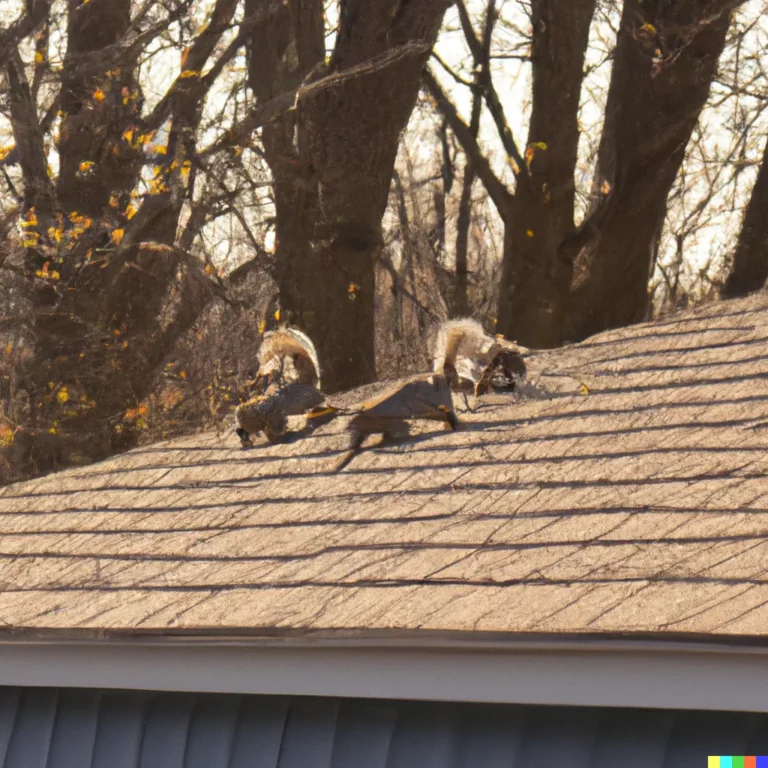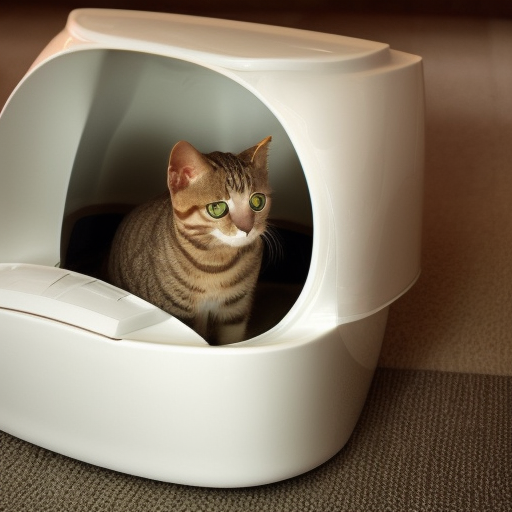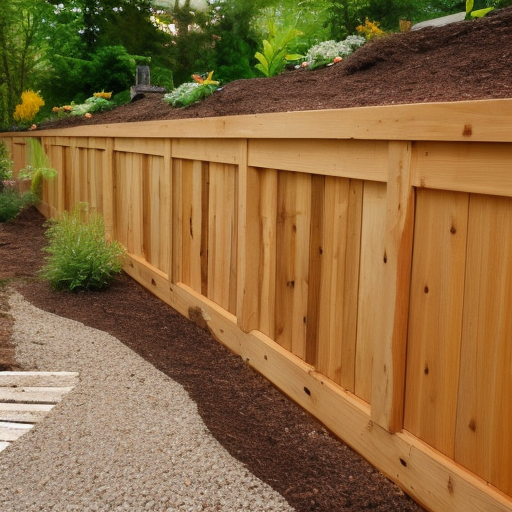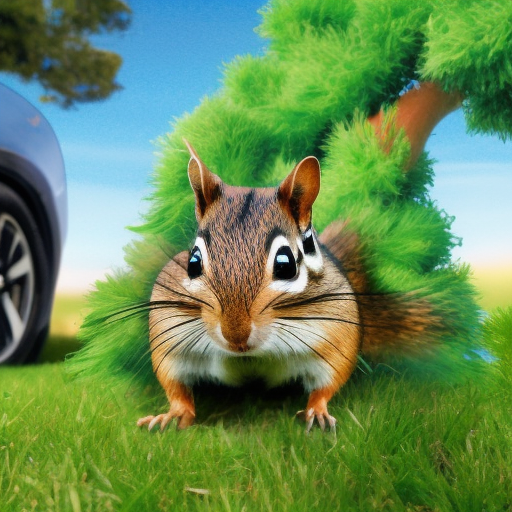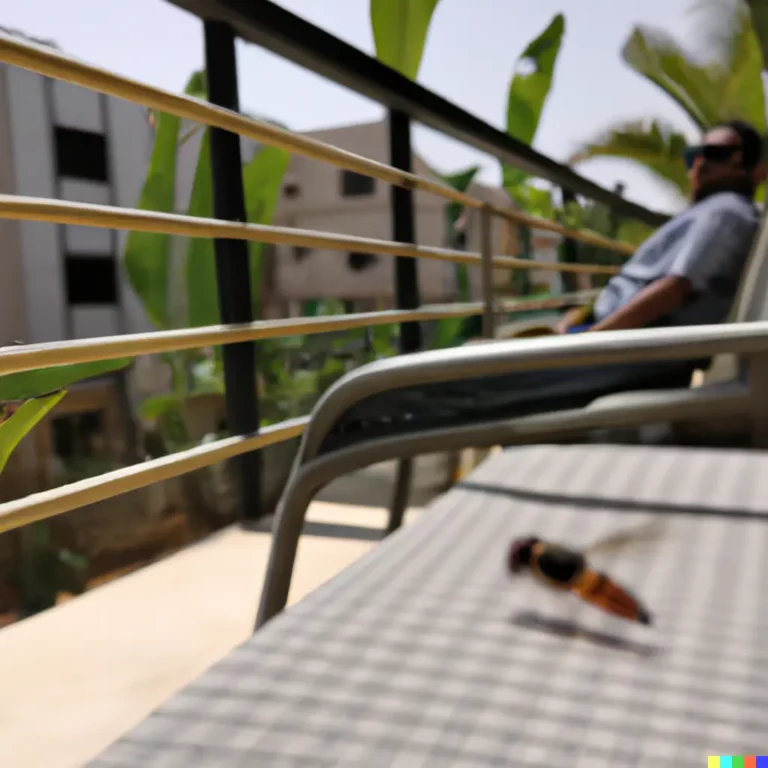How to get rid of aphids the ultimate guide
You’re in your garden, enjoying the fruits of your labor, when you notice a small group of bugs huddled together on one of your plants. You may not think much of it at first, but then you notice that the aphids are starting to spread to other plants. Before you know it, your entire garden is infested with aphids. These pests can quickly destroy your plants, and are a general nuisance. You need to know how to get rid of aphids! Now!
Common challenges people have with aphids?
Aphids are small, sap-sucking insects that can infest a wide range of plants. They are often difficult to control because they reproduce very quickly and can develop resistance to pesticides. In addition, many of the natural predators that help keep aphid populations in check are also susceptible to pesticides.
But don’t worry! If you’re dealing with aphids, you’re not alone. These pesky pests are a common problem for gardeners, and they can be difficult to get rid of. But don’t despair! In this article, we’ll show you how to get rid of aphids once and for all.
What’s the worst thing that could happen if you don’t get rid of aphids?
If you don’t get rid of aphids, your plants could be seriously damaged or even killed. Aphids are small, sap-sucking insects that can wreak havoc on a garden. They can cause leaves to yellow and wilt.
If you don’t get rid of aphids, they will continue to reproduce and infest your plants. Aphids can also spread diseases to your plants, which can cause them to weaken and die.
Aphids can be very destructive in a short amount of time, so act swiftly.
What are the benefits of getting rid of aphids?
Getting rid of aphids can help improve the health of your plants and prevent the spread of disease.
What are aphids?
Aphids are small, sap-sucking insects that can do a lot of damage to your plants. They are part of the family of Aphidoidea. They can cause leaves to yellow and wilt, and can even stunt the growth of young plants. Aphids are among the most destructive insect pests on cultivated plants in temperate regions.
Aphids also produce a sticky substance called honeydew, which can attract other potentially harmful insects, like ants and bees and can also be a precursor and catalyzer of sooty mould.
Apart from that, aphids are also known to transmit diseases/plant viruses from plant to plant.
Getting rid of aphids is therefore essential to protecting your plants and ensuring a good harvest.
What is their habitat?
Aphids are small, sap-sucking pests that can be found on a wide variety of plants. They are often found on the undersides of leaves, where they can feed on the plant’s sap. Aphids can also be found on stems, flowers, and even the fruits of some plants.
What plants do aphids eat?
You may be wondering what do aphids eat? Well, they eat the sap of plants. And depending on the type of aphids, some may feed only from the sap of one plant while others may feed from hundreds of plants from different families. They can infest a wide range of plants including ornamentals, vegetables, and fruit trees.
Typically, they like to infest and eat sap from fruit trees, vine-grown vegetables from the nightshades family, underground vegetables, melons, all leafy vegetables and even some herbs.
They also like weedy plants like those from the brasicae family (i.e. wild mustards), milkweed and sowthisle too.
What is their life cycle?
A fun fact about aphids is that females, can give birth of pregnant females without the intervention of males! We call that telescoping generations. But, that’s not the only way they reproduce.
Usually, aphids have a simple life cycle that consists of three main stages: egg, nymph, and adult. The egg stage lasts for about a week, during which time the aphid develops into a nymph. The nymph stage lasts for about two weeks, during which time the aphid molts several times and grows larger. The adult stage lasts for about a week, during which time the aphid reproduces.
Another thing to know is that eggs can be in diapause and overwrintered. When spring arises, the eggs hatches and nymphs are then born. Adults can be winged or wingless.
We call this process simple metamorphosis, but they can also reproduce through a parthogenic process where the offsprings come to life without mating.
Aphids can reproduce faster than any other insects, which make them though to get rid of.
What are aphids natural predators?
Aphids have many natural predators, including ladybugs, lacewings, hoverflies, crab spiders, aphid midge larvae, soldier beetles, syrphid fly larvae and parasitic wasps.
Want to have more details about aphids? Here’s a direct link to wikipedia.
Tips and general rules on how to get rid of aphids
The best way to get rid of aphids is to prevent them from infesting your plants in the first place. This can be done by keeping your garden clean and free of debris, and by planting aphid-resistant varieties of plants. And if you see some aphids, move quickly! Time is the essence.
Getting rid of aphids can be a challenge, but it’s important to do if you want to protect your plants. There are a number of ways to get rid of aphids, but the most effective method will depend on the type of plant that is affected, the severity of the infestation, and the time of year. Aphids are most commonly found in late spring and early summer, when they are attracted to new growth on plants.
Here are some general tips on how to get rid of aphids. We will get into greater details after :
Remove aphids by hand
This is the most labor-intensive method, but it can be effective if you have a small infestation.
Spray aphids with water
One way to get rid of aphids is to simply blast them off of your plants with a strong stream of water from a hose. This will dislodge them from your plants and make it more difficult for them to climb back on. This will remove most of the aphids from the plant, but it will not kill them.
Use insecticidal soap
This is a safe and effective way to kill aphids. Soaps will kill aphids, but they must be applied directly to the aphids, and they can damage some plants.
Apply neem oil
This is a natural oil that is effective at killing aphids and other pests. Mix a couple tablespoons of neem oil to water, put that in a spinkler and focus on the underside of leaves, where the aphids like to hide to suck sap. It will suffocate them. Repeat once a week.
Release beneficial insects
Ladybugs and lacewings are natural predators of aphids and can help to control an infestation. Ladybugs and lacewings will eat aphids, and parasitic wasps will lay their eggs in aphids, killing them. These methods are safe for people and pets, and they will not damage plants.
Use insecticides
Another way to get rid of aphids is to use an insecticide. There are many different types of insecticides that are effective against aphids, but you should always read the label carefully to make sure that the product is safe for the plant that you are using it on.
One of the downside is that insecticides can also kill beneficial insects, so they should be used as a last resort.
If you have a severe infestation of aphids, you may need to use a combination of methods to get rid of them. For example, you may need to use an insecticide to kill the aphids and then follow up with a stream of water to remove any remaining aphids.
The best time to get rid of aphids
The best time to get rid of aphids is in the early spring before they have a chance to lay their eggs. Once the eggs hatch, the aphids will quickly multiply and become more difficult to control. If you have aphids on your plants, there are a number of things that you can do to get rid of them. Try one or more of the methods described above to get rid of these pests and protect your plants.
Plants that naturally repel aphids
There are some plants that aphids don’t like. You can use them in your war against aphids in conjunction with other methods.
For example, aphids doesn’t usually like herbs.
If you plant coriander, minth, fennel, dill, garlic, chives, catnip, leeks or cilantor next to plants that may attract aphids, it could help repel them.
Here’s a cool pdf to help you control aphids or other pests naturally : pest control companion planting chart (outside link to download a pdf from the https://womensconference.byu.edu/ site).How to get rid of aphids on roses?
How to get rid of aphids on roses naturally?
Aphids are one of the most common pests that can infest your roses. In order to get rid of them, you need to take a few preventative measures and also treat the plant with an insecticide.
Here are a few tips on how to get rid of aphids on roses:
1. Inspect your roses regularly for aphids and other pests.
2. If you see aphids on your roses, remove them by hand or with a strong stream of water from a hose.
3. Apply an insecticide to your roses to kill any remaining aphids.
4. Take preventative measures to keep aphids from returning, such as planting companion plants that naturally repel aphids or using aphid-resistant varieties of roses.
Aphids resistant type of rose
There are some aphids resistant cultivars like Stella’ and ‘Alibaba’ amongst others.
How to get rid of cabbage aphids?
Brocoli and kale too
Cabbage aphids are gray-green and they usually prefer to feed on young leaves, buds or seed stalks. They also like brussel sprouts. In fact, cabbage aphids are specific to brassicas and as such they feed from not only cabbage, but also broccoli, cauliflower, brussels sprouts and so on.
Injuries they make to cabbage
Cabbage aphids prefer to feed on young leaves, flower buds, or seed stalks in the upper part of the plant and also feed in developing Brussels sprout buds.
If you spot yellow leaves or downward curling leaves, you may have an infestation. Watch more closely as aphids usually hide bellow the leaves. In addition to damaging the plants, cabbage aphids with secrete what we call aphid honeydew, a sticky sugary substance on the plant.
Common diseases they disseminate
From cabbage ring spot virus to cauliflower mosaic, aphids may transmit theses viruses during probing.
How to prevent cabbage aphids from destroying my brassicas
Cabbage aphids can be a real problem in the garden. But don’t worry, there are a few things you can do to get rid of them. You’ll see it’s very similar to what can be done with any aphids.
Preventing aphids from colonizing your cabbages
You can make sure to control weeds from the brassica family in your garden and inspect your transplants before introducing them in your garden to make sure they are not already infested. Weeds from the mustard family seems to be a potential vector of an aphids infestation.
As soon as you spot an infested plant soon in the season, you may have a chance to stop the infestation before winged adults start to appear and disseminate. Weed out these plants fast!
Finally, installing some reflective mulch might deter them from coming into your garden.
If prevention is not enough?
One of the best ways to get rid of cabbage aphids is to introduce some natural predators into your garden. Ladybugs and lacewings are both great at eating aphids. You may be able to buy them online or at your local garden center.
Another way to get rid of cabbage aphids is to blast them off with a hose. This works best in the early morning when they’re slow and sluggish. Just be careful not to blast your plants too hard or you could damage them.
You can also try using an insecticidal soap. Mix a few tablespoons of soap with water and spray it on the aphids. This will kill them on contact.
If you have a really bad infestation, you may need to use a stronger insecticide. Contact your local garden center for advice. Be sure to follow the directions carefully and only use the amount recommended. Too much insecticide can harm your plants and even kill them.
With a little patience and perseverance, you can get rid of cabbage aphids and keep your garden healthy and happy.
Want to know more specifically on cabbage aphids?
How to get rid of aphids on tomato plants naturally?
Tomato plants are also susceptible to aphids, which can cause damage to the plant and reduce yields. But, tomato plants can usually tolerate large numbers of aphids without too much damage.
Anyhow, it is always better to get rid of aphids as they spread so fast and can also spread plant viruses. For tomatoes, you can apply the same techniques found on this page.
One of the technique would be to simply dilute one tablespoon of neem oil in two cups of water and put that in a sprayer.
They, spray the underside of the leaves at least once a week.
You could also buy horticultural oil that may not also suffocate aphids, but also kill the mold that often develop during an infestation.
How to get rid of aphids during flowering?
Flowers can be delicate. So, if you want to get rid of aphids during flowering and have the capacity to do it, it’s probably preferable to remove aphids on flowers by hand.
If there are too many, try neem oil or other horticultural oil.
How to get rid of aphids on hibiscus?
For hibiscus, once again, removing them by hand is a good idea. But hibiscus can take some strenght. You could thus try to wash them off the plant with a relatively strong jet of water from the hose. Be careful not to damage the plant though.
Aphids that have fallen down won’t usually be able to crawl back up and will just be left to die there.
If it doesn’t work, try one of the other methods discussed above.
How to get rid of aphids in trees?
Trees are tough buddies and may not need any treatment at all! But, if you believe they do, here, you can be a little rough and use the hose to wash the aphids off!
Insecticidal soap, Neem oil or horticultural oil can definitely help here.
How to get rid of root aphids?
Root aphids are small, sap-sucking insects that feed on the roots of plants. They are often found in greenhouses and gardens, and can cause serious damage to plants if left unchecked.
One of the best way to avoid the risk of infestation is to check the plants before introducting them into your nursery or greenhouse.
If you can affort it, remove and discard the infested plant entirely. When removing it, put it in a plastic bag to avoid laying eggs everywhere while moving it away.
Insecticidal soap may not be recommended here because it not reach any bugs that are below the soil. Instead, you may need to treat the soil with a proper insecticide or fungus that attacks them. Discuss with your local garden shop.
How to get rids of aphids anywhere?
No, to avoid redundancy because in the ends, aphids are what they are and we are not going to reinvent the well for every infestations, if you want to know of to get rid of :
Well, basically, the same techniques applies!
If it’s from an ornemental tree that you want to get rid of aphids, than you can be a little tougher and use the hose spray nozel to wash them out or use proper pesticides. Alway use a respirator, proper protections and follow the label when applying pesticides. Also, be specific and careful as pesticides may harm you, others or animals and follow local laws.
If you’re trying to get rid of aphids from a flower plant, you may want to be more gentle and remove them manually, introduce predators, plant some herbs that deter them from infesting the surroundings or use neem oil or other horticultural oils.
If you want to get rid of aphids from vegetables, than, make sure the technique you’re going to use is safe for humans and pets. You don’t want to poison you. If washing them up or removing them manually is not an option, than talk to your local garden center or simply get rid of the infested plant before the infestation spreads. Be careful not spreading the eggs when manipulating and removing the infested plant.
Conclusion
In conclusion, there are many ways to get rid of aphids. Some of these methods include using natural predators, like ladybugs, or using insecticidal soap. You can also try planting certain plants that aphids don’t like, like marigolds or garlic. Neem oil or other horticultural oils may also help.
There are no one size fits all solution to get rid of aphid. It all depends of the plant and the extent of the infestation. But, one thing for sure, is that you need to take that seriously and act fast as they spread very rapidly.
Frequently asked questions about aphids
Q. What instantly kills aphids?
There is no one-size-fits-all answer to this question, as the best way to get rid of root aphids depends on the specific circumstances of your infestation. However, some effective methods of control include using insecticidal soap, neem oil, or horticultural oil. You may also need to take measures to control the aphids’ food source, such as removing weeds or planting pest-resistant crops.
However, while neem oil or other horticultural oil may not kill aphids instantly, they will suffocate them and as such, appart from using a insecticide, this may be the most efficient way of killing aphids.
Q. What home remedy kills aphids?
There are a number of home remedies that can effectively kill aphids, including:
• Spraying them with a strong jet of water from a hose
• Spraying them with an insecticidal soap or neem oil solution
• Smashing them with your fingers
• Using a organic pesticide such as pyrethrin
Q. Can vinegar kill aphids?
Yes, vinegar can kill aphids! The acidic properties of vinegar make it a great natural insecticide for killing aphids and other garden pests. Simply mix up a solution of 1 part vinegar to 10 parts water and spray it on your plants. You can also tryout a more concentrated solution, but, the problem with vinegar is that it can also kill or damage your plants so there might be better options as stated in this articule.
Q. How to get rid of aphid eggs?
If you’re looking to get rid of aphids, you’ll need to start by getting rid of their eggs. Unfortunately, aphids lay their eggs on the undersides of leaves, which makes them tricky to spot. The best way to find and destroy aphid eggs is to regularly inspect the undersides of leaves on your plants. If you see any egg masses, simply remove them with your fingers or a cotton swab dipped in rubbing alcohol.
Q. What temperature kills aphid?
You’re wondering at what temperature do aphids die? Unfortunately, while living aphids will die when temperature will go below -5 Celcius or so, their eggs will overwinter and as such, frost is not the way to kill them.
You could try to cook them with steam… but then you will kill the plant too… right?
There are better ways to get rid of aphids. Look above, we have plenty of solutions here.
Q. Do aphids jump?
No, aphids do not jump. Some have wings when the time arises, they crawl, but not that much. So you won’t find a Micheal Jordan here! In fact, if you wash them out from the plant, chances are they won’t be able to come back to it.
Q. Does bt kill aphids?
BT or Bacillus thuringiensis is usually used to get rid of caterpillars. It has no effect on aphids.
Q. Do aphids bite humans?
Aphids do not bite humans and not harmful to humans in any direct ways. But they can be harmful in indirect ways such as destroying crops and reducing the yields of plants.
Q. Does diatomaceous earth kill aphids?
Yes. Aphids are one of the most common garden pests, and they can be difficult to get rid of. If you’re looking for a way to get rid of aphids, diatomaceous earth may be the answer. Diatomaceous earth is a type of sedimentary rock that is made up of the remains of tiny aquatic creatures called diatoms. The sharp edges of diatomaceous earth can cut through the exoskeleton of aphids, causing them to dehydrate and die. To use diatomaceous earth to kill aphids, simply sprinkle it around the base of plants that are infested with aphids. You can also put it in a powder duster and apply it to the leaves of plants where aphids are present.
You may need to apply the treament several times and after each episode of rain or watering, so there may be a better option above.
Q. Do aphids live in the soil?
Aphids may be found in the soil, but they do not live there permanently. Some types of aphids focus on roots and as such may be found in soil.
Q. Do marigolds repel aphids?
Yes. The pigments in marigolds’ flowers may repel aphids. Yellow marigold may be used as trap to keep aphids away from other plants.
Q. Do hummingbirds eat aphids?
There is no one answer to this question because different hummingbirds have different diets. Some hummingbirds eat primarily nectar from flowers, while others eat more insects. Some hummingbirds may eat aphids, while others may not.
Q. Do spiders eat aphids?
Yes, spiders will eat aphids if they are able to catch them. But, there are better predators for aphids out there such as the ladybugs. Look above for a list of natural predators.
Q. Does sevin dust kill aphids?
Sevin dust does kill aphids but it can also be harmful to other beneficial insects, so it may not be the best tool to get rid of an aphids infestation for a starter. There are more softer ways to get rid of them like washing them off with a water hose.

